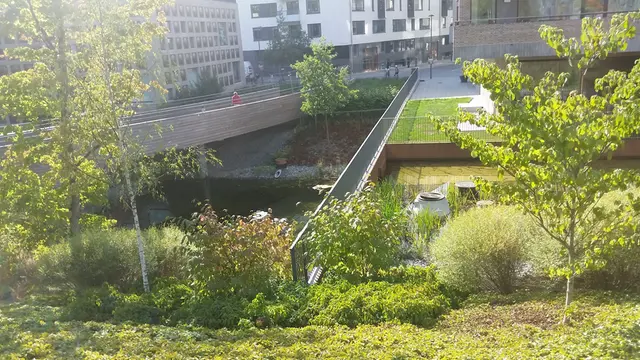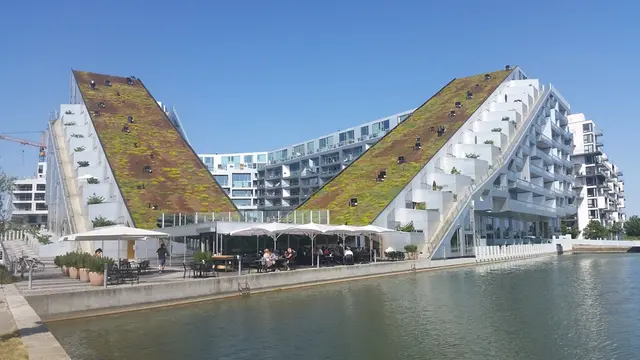G.I.Nord – Green infrastructure and climate in Nordic cities
G.I.Nord synthesis project aims at defining critical knowledge gaps and practical needs and obstacles to an efficient implementation of Urban Green Infrastructure (UGI) as a climate change adaptation tool in urban planning. Together with stakeholders, end-users and experts, lessons and experiences from Nordic cities are defined as catalyzers of the implementation and up-scaling of UGI in Sweden.
The Paris Agreement and the New Urban Agenda set the stage for worldwide countries to undertake ambitious efforts to combat climate change and adapt to its effects, namely by supporting innovative and green initiatives. UGI enables municipalities to maximize Ecosystem Services provision, while resulting in multiple co-benefits for the human health, the economy, the environment and, in general, for the society.

Stockholm is growing rapidly and 140,000 new homes are planned by 2030. Stockholm Royal Seaport ("Norra Djurgårdsstaden") is the largest urban development area in Sweden with at least 12,000 new homes and 35,000 workplaces. Planning work started in the early 2000s and the new city district will be fully developed around 2030.
G.I.Nord addresses the need of society to minimize the negative effects of climate change through adequate adaptation actions. Our approach is targeting at providing a synthesis of the difficulties, the trade-offs, and the (co-)benefits (namely to human health and well-being) of UGI as Nature-based Solutions (NbS) to climate change adaptation. The project, which runs through the year of 2018, is based on two main tasks:
- systematic literature review of scientific papers dealing with the interaction of UGI with the urban climate in Nordic cities. The goal is to understand the state-of-the-art of scientific knowledge and identifying gaps or needs. Because of the wide nature of these interactions, the screening includes topics such as: heat stress amelioration, cloudburst management, air quality improvement, and health effects.
- compilation and review of the “grey” literature, visits to selected sites with implemented UGI in Stockholm, Malmö and Copenhagen, and workshops aiming at sharing experiences and needs with end-users.
Report: Climate adaptation of Nordic cities with green infrastrucutre (in Swedish) External link.
External link.
The green roofs at Tivoli Congress Centre and Rigsarkivet in Copenhagen, called "The green strip", were installed in 2009 and cover more than 7000 m2.
Goals
Knowledge gaps still persist in the quantification, representation and understanding of the interrelated factors that determine the effectiveness of UGI towards adaptation, as also its co-benefits and negative impacts. To support the implementation of effective actions by decision-makers and practitioners more knowledge is needed. The barriers to an effective transfer of knowledge are also far from completely identified and solved. In this context, the G.I.Nord synthesis project aims at:
- reviewing the state-of-the-art of the interactions between UGI and climate, and their impacts, in Nordic cities,
- identifying needs of knowledge and tools for implementation of UGI as an effective climate change adaptation tool in the development, planning and design of Nordic cities.

The 8House in Copenhagen, winner of the Scandinavian Green Roof Award in 2010. Sedum roofs and the large pond strengthen the strong character of the building.
About the project
SMHI role
Project coordination. Scientific literature review and dialogue with end-users. Organization of workshops and field visits.
Partner
Stockholm City
Funding
FORMAS
Project period
2018/01-2018/12

